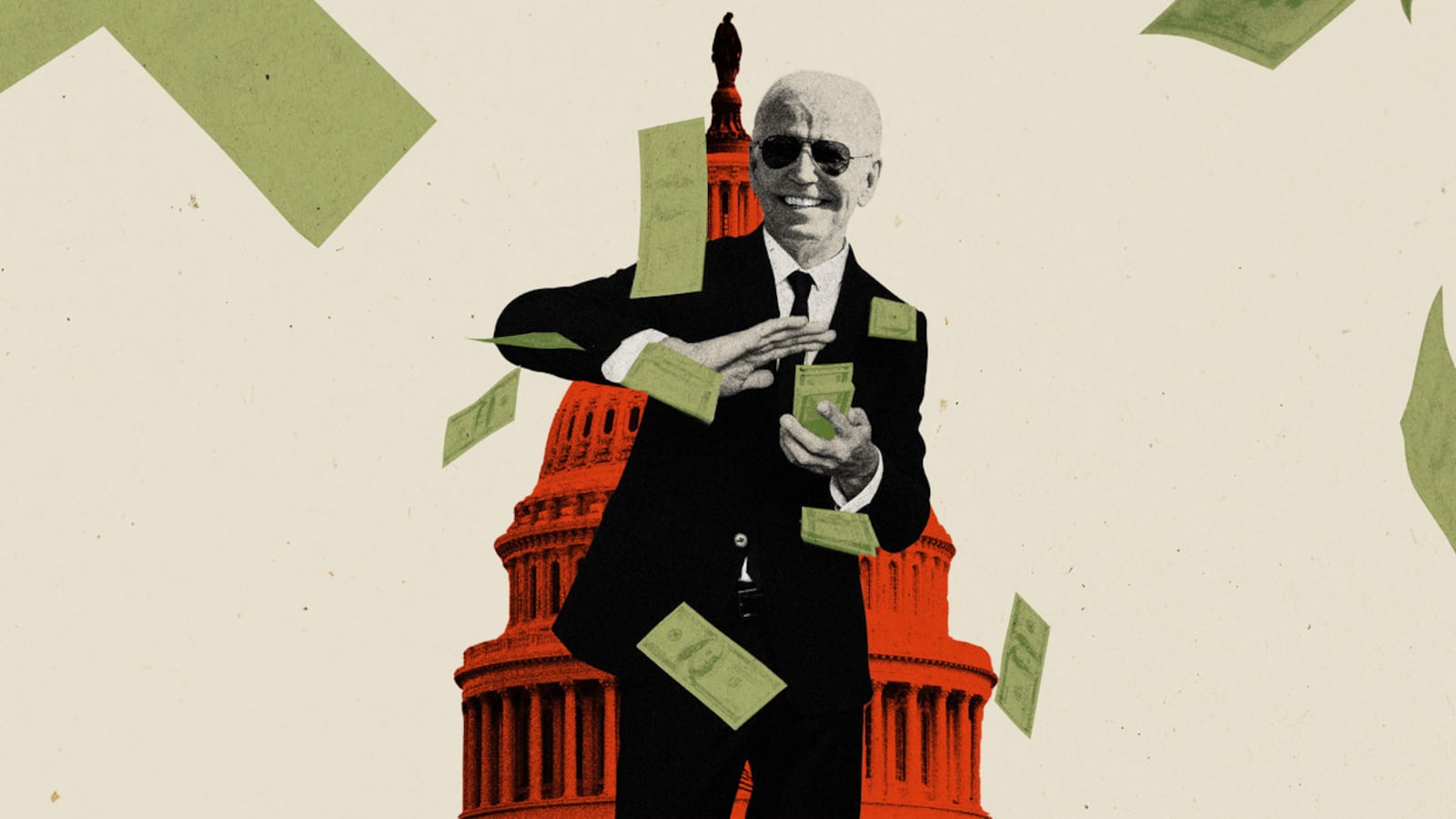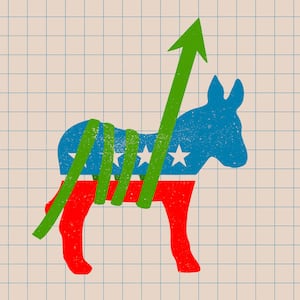After a surprisingly strong—and surprisingly bipartisan—House vote Wednesday night on the debt limit compromise, Republican senators who looked poised to fight tooth and nail on Thursday instead went quietly and softly, opting instead to speed up a vote, pass the deal, and get out of town.
But if you ask the GOP senators themselves, it wasn’t that they were any less opposed to the bill. Something else, something much larger than the desire to have a long weekend, might have been at play.
Sen. Mike Lee (R-UT) spent much of Wednesday trying to muster a rebellion in the House, showing up on the House side to talk with conservatives, speaking out on the deal, even calling attention to a Daily Beast article about Democrats not wanting to brag too early that they had won the negotiation.
On Thursday, he told The Daily Beast he still didn’t like the deal, and he said conversations with his fellow Senate Republicans hadn’t done much to ease his concerns.
“I wanted to like this bill,” he said. “I wanted to be able to vote for this bill. I had a lot of optimism about what was coming out of the House and a lot of confidence in Speaker McCarthy.”
“But,” he continued, “I think something happened, and perhaps he got bad advice on what things meant.”
For his fellow Senate Republicans, he said really wanted to know “how they get to any of these conclusions about what this bill does.”
“I look at it and I think, ‘Where’s the beef?’” he said.
Sen. Rand Paul (R-KY), known for holding up spending agreements he doesn’t like and forcing the Senate to use up all of its debate time, also tweeted Wednesday that he hated the compromise.
“There’s nothing conservative about a debt deal that grants unlimited borrowing for two years that experts estimate will likely exceed $4 trillion,” he wrote.

Similar negative sentiments were expressed by Sens. Josh Hawley (R-MO), Ted Cruz (R-TX), J.D. Vance (R-OH), Rick Scott (R-FL), Mike Braun (R-IN) and Tim Scott (R-SC).
And yet, when given the chance on Thursday to slow down the bill, to speak out about the deal and perhaps try to coalesce some opposition to it, these GOP senators all went along with a deal to speed up the vote.
Why?
“Mike Lee knows how this ends,” a senior GOP aide explained to The Daily Beast. “There’s no real point in making Joe Biden look like he won by fighting this and forcing everyone to be here through the weekend on the brink of default.”
“Don’t help Biden make us look like a bunch of jackasses,” the aide continued.
Everyone in Congress recognizes that the debt limit deal is becoming law. Senators could hold up the measure and force votes over the weekend, but no matter how much of a temper tantrum they throw, the debt ceiling bill was becoming law.
What is an open question, however, is which party will get to claim they got the best of the other. Although more Democrats in the House voted for the bill than Republicans, McCarthy got a strong enough vote that he can reasonably claim some sort of victory.
He moved President Joe Biden and Democrats off their reflexive stance that they wouldn’t trade anything for a debt limit increase. And, according to the Congressional Budget Office, the reforms in the ultimate agreement will save $1.5 trillion over the next decade.
But Democrats are clearly winning the public relations battle. When the bill passed Wednesday night, Rep. Brad Sherman (D-CA) told a reporter, “Now we are allowed to say it: we rolled them.”
Claiming credit for congressional achievements is a core element of the job, but spinning outcomes and claiming victory can sometimes be even more essential.
Biden would like nothing more than for the narrative to be that he outsmarted McCarthy and the Republicans. He would love a protracted battle in the Senate where conservatives take turns on the floor slamming the deal and crying that Biden got the better of them. Ultimately, the more the GOP complains about this agreement, the longer Republican senators draw out the inevitable conclusion, the better for Biden and Democrats and the worse for McCarthy and Republicans.
Biden has yet to take a full victory lap. He told reporters Monday that he heard them asking why he wouldn’t “say what a good deal it is before the vote.”
“You think that’s going to help me get it passed? No,” Biden said.
Biden has mostly avoided the sort of victory lap that may trigger Republicans into second-guessing their support of the deal. A Politico report Thursday noted Biden allies were being actively encouraged to keep their cool—at least until the deal gets through.
And that decision seems to have helped. After 149 of 222 Republicans in the House voted for the legislation on Wednesday, 17 Republicans in the Senate voted for it, too, sending the bill to Biden’s desk well in advance of a default. (The GOP margins did nearly flip between the chambers, however, with 36 Senate Republicans voting against the legislation Thursday night.)
But with the legislation through Congress, Biden and other Democrats may go on the offensive about how much they think they rolled Republicans—even if the truth is more complicated.
Minutes after the bill passed, the White House announced that Biden would address the nation on Friday from the Oval Office about averting a default.
As a White House official told The Daily Beast Thursday night after the Senate passed the bill, “Do what works best, not what feels best.”






